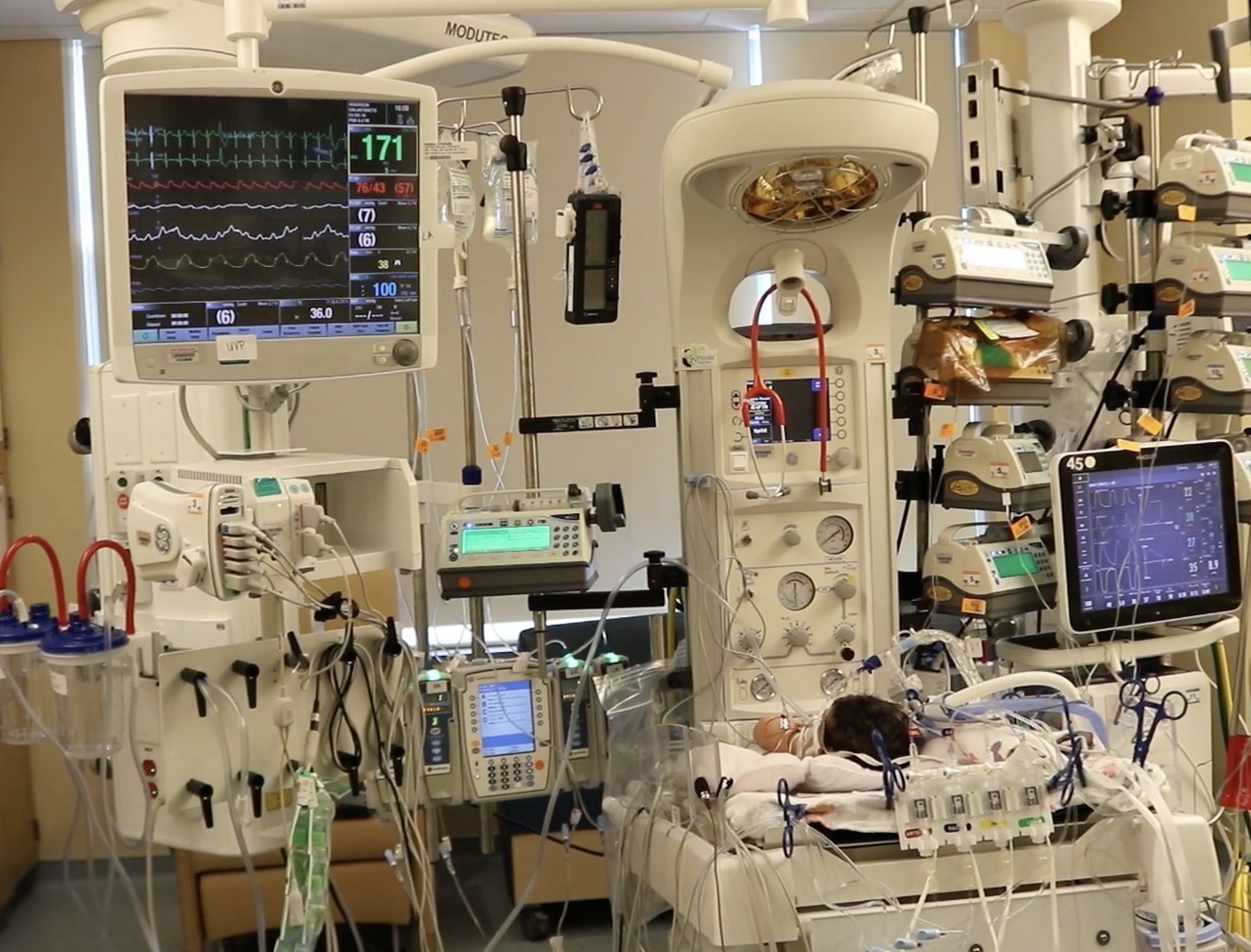Development of a High-Performing Congenital Heart Program in Vietnam
Nguyen CP, Nguyen HN, Tabbutt S, Sano S, Cocalis M, Nguyen H, Busch H, Dobrzycka A, Jenkins KJ, Gauvreau K, Nguyen Duc HL and Ly Thinh TN
ObjectiveChildren's HeartLink and the University of California San Francisco (UCSF) have partnered with Vietnam National Children's Hospital (VNCH). Compared with low- and middle-income countries (LMICs) enrolled in the International Quality Improvement Collaborative for Congenital Heart Disease, VNCH is a high performing center. Our goal is to compare outcomes of VNCH with North American centers leveraging data from the Pediatric Cardiac Critical Care Consortium (PC) in 2023.MethodsChildren's HeartLink established a partnership with VNCH in 2017 with a consistent senior-level medical volunteer team from UCSF (Dr Sano currently at Showa University Hospital) engaged in semiannual training visits and weekly case conferences. In-person visits have evolved to hands-off teaching. Areas of improvement are identified, and outcomes presented at the subsequent visit. International Quality Improvement Collaborative and PC perform site specific audits to confirm data accuracy. Data presented are based on primary operations. Conversion from Risk Adjustment for Congenital Heart Surgery (RACHS-1) to STAT is as follows: RACHS-1 1-4 equal STAT 1-4; RACHS-1 5-6 equal STAT 5.ResultsResults represent 8 on-site visits and 109 case discussions. VNCH performed 1,056 operations, and PC represents 14,506 operations in 2023. VNCH had comparable outcomes, except higher surgical mortality for infants with prematurity and noncardiac abnormalities, and a higher rate of surgical site infections. VNCH performed fewer operations on patients with noncardiac abnormalities and higher STAT scores.ConclusionsPartnership of highly resourced North American programs with underresourced LMIC centers can elevate congenital heart surgery outcomes. VNCH is a high-volume center with respectable outcomes. Future focus will be higher STAT level and neonatal surgeries.
Early Diuretic Administration After Neonatal Cardiac Surgery and Association with Clinical Outcomes: A Report from NEPHRON
Stegmeier N, Alten J, Borasino S, Carlisle MA, Chakraborty A, Gist KM, Reichle G, Selewski D, Zang H, Zender J and Bertrandt R
ObjectiveThis study aimed to investigate associations between early diuretic administration following neonatal cardiac surgery and clinical outcomes.MethodsThis was a retrospective cohort study including neonates who underwent cardiac surgery within the first 30 postnatal days between September 2015 and January 2018 at 22 centers participating in the Pediatric Cardiac Critical Care Consortium (PC) and Neonatal and Pediatric Heart and Renal Outcomes Network (NEPHRON) registries. Multivariable logistic and ordinal regression models were used to assess associations between early diuretic administration [defined as receipt of furosemide in the operating room and/or any diuretic on postoperative day 0 (POD0)] and outcomes. Outcomes: peak cumulative fluid balance, delay in achieving first negative daily fluid balance, duration of mechanical ventilation, hospital length of stay (LOS), and severe persistent acute kidney injury (AKI). An additional exploratory analysis was performed to assess for association between receiving enteral diuretic within the study period (POD0-6) and hospital LOS.ResultsOf 2240 neonates, 63% (n = 1405) had early diuretic administration and 15% (n = 344) received enteral diuretics. After adjusting for covariates and center effect, early diuretic administration was associated with shorter duration of mechanical ventilation [Odds Ratio (OR) = 0.59, 95% confidence interval (95%CI) 0.42-0.82] and a lower odds of delay in negative daily fluid balance (OR = 0.44, 95%CI 0.26-0.75), but not severe persistent AKI. Receiving enteral diuretic by POD6 was associated with decreased hospital LOS (OR = 0.3, 95%CI 0.23-0.41).ConclusionsEarly diuretic administration is associated with earlier time to negative daily fluid balance and shorter duration of mechanical ventilation. Efforts to standardize early diuretic administration have the potential to decrease resource utilization and warrants further study.
Central Venous Catheter Selection, Management, and Treatment of Catheter-Associated Deep Vein Thrombosis in Children Undergoing Cardiac Surgery: A Survey of Pediatric Cardiac Critical Care Consortium Centers
Kim JS, Patregnani JT, Ankola AA, Schumacher K, Klugman D, Giglia TM, Baltagi SA, Baylor JG, Bressler E, Downey LA, Linder J, Marcus BS, Yeh J, Zhang W, Werho DK and
Children undergoing surgery for congenital heart disease (CHD) are at risk for catheter-associated deep vein thrombosis (CA-DVT). We sought to understand the practice variations which may impact the risk for CA-DVT by conducting a comprehensive survey. Analysis of electronic survey of Pediatric Cardiac Critical Care Consortium (PC) hospitals caring for children undergoing surgery for CHD. Responses from 45 respondent PC4 centers was analyzed; 71% of centers (n = 32) had a prophylactic anticoagulation protocol. Two of the 45 respondent centers utilized a protocol for proactive screening for CA-DVT; 64% of centers (29/45) treated CA-DVT for a duration of 6 to 12 weeks. Internal jugular central vein catheters (CVC) were the most common primary access in children who were 1 to 18 years of age undergoing surgery (89% [40/45] of centers) and in infants 1 to 12 months of age (73% [33/45] of centers). Significant variability CVC-type selection was reported in neonates (<30 days of age). More than half of centers reported avoiding upper extremity peripherally inserted central catheter placement in patients both prior to and after stage 2 palliation for single ventricle CHD (58% [26/45] and 53% [24/45], respectively). Significant variability in prevention and management of CA-DVT is reported among PC centers. Only half of respondent PC4 centers reported having an established treatment protocol for CA-DVT. Consensus and evidence-based guidelines for the treatment of CA-DVT are not consistently followed with only 62% (28/45) of centers reported treating for the recommended 6 to 12 weeks with anticoagulation. There is high variability in CVC-type and location selection in neonates undergoing CHD surgery.
Diaphragm Dysfunction following Congenital Heart Surgery: Epidemiology and Outcomes
Ruppe M, DeWitt A, Schumacher KR, Jacobs JP, Algaze CA, Smith A, Akins R, Mikesell K, Zhang W, Austin E and Lasa JJ
We sought to leverage a large clinical registry of pediatric cardiac critical care patients to better understand current practices related to the diagnosis and management of patients with diaphragm dysfunction following congenital heart surgery (CHS).
Risk Factors Associated With Central Venous Catheter-Associated Deep Vein Thrombosis After Pediatric Congenital Heart Surgery: An Analysis of the Pediatric Cardiac Critical Care Consortium Registry
Patregnani JT, Ankola AA, Kim JS, Downey L, Klugman D, Baltagi S, Linder J, Banerjee M, Zhang W, Mikesell K, Schumacher K, Giglia T and Werho DK
Infants and children undergoing cardiac surgery are one of the highest-risk groups for thrombosis and its sequelae. We sought to define the current rate of and risk factors for postoperative central venous catheter (CVC)-associated deep vein thrombosis (CA-DVT) using the Pediatric Cardiac Critical Care Consortium (PC) dataset. Retrospective review of PC database from February 2019 to February 2022. Children <18 years of age admitted for a surgical encounter who had a CVC placed. Included were 33,491 patient encounters, of whom 37.6% (12,582/33,491) were infants (<12 months of age). The overall CA-DVT rate was 2.5% (844/33,491), which varied widely among centers (0-11%). Multivariable analysis showed increased risk of CA-DVT with increasing Society of Thoracic Surgeons-European Association for Cardio-Thoracic Surgery (STAT) category (STAT 2 HR 1.8, CI [1.26-2.65]; STAT 3 HR 2.2, CI [1.56-3.39]; STAT 4 HR 2.1, CI [1.55-2.93]; STAT 5 HR 2.5, CI [1.69-3.82]), ( < .001 for all), low cardiac output syndrome (HR 1.5, CI [1.25-1.91]), < .001, and postoperative arrhythmia (HR 1.23, CI [1.03-1.47]) = .024). Patients with CA-DVT were less likely to have an internal jugular vein catheter or intracardiac line and more likely to have an umbilical venous catheter, femoral vein CVC, peripherally inserted CVC, and/or multiple CVCs. CA-DVT remains an important postoperative complication after pediatric cardiac surgery, with greatest risk of occurrence in the younger, smaller, more surgically complex by STAT category, and hemodynamically vulnerable patients. These risk factors must be considered when developing paradigms for CVC placement, thromboprophylaxis, and diagnosis/treatment of CA-DVT in the future.

